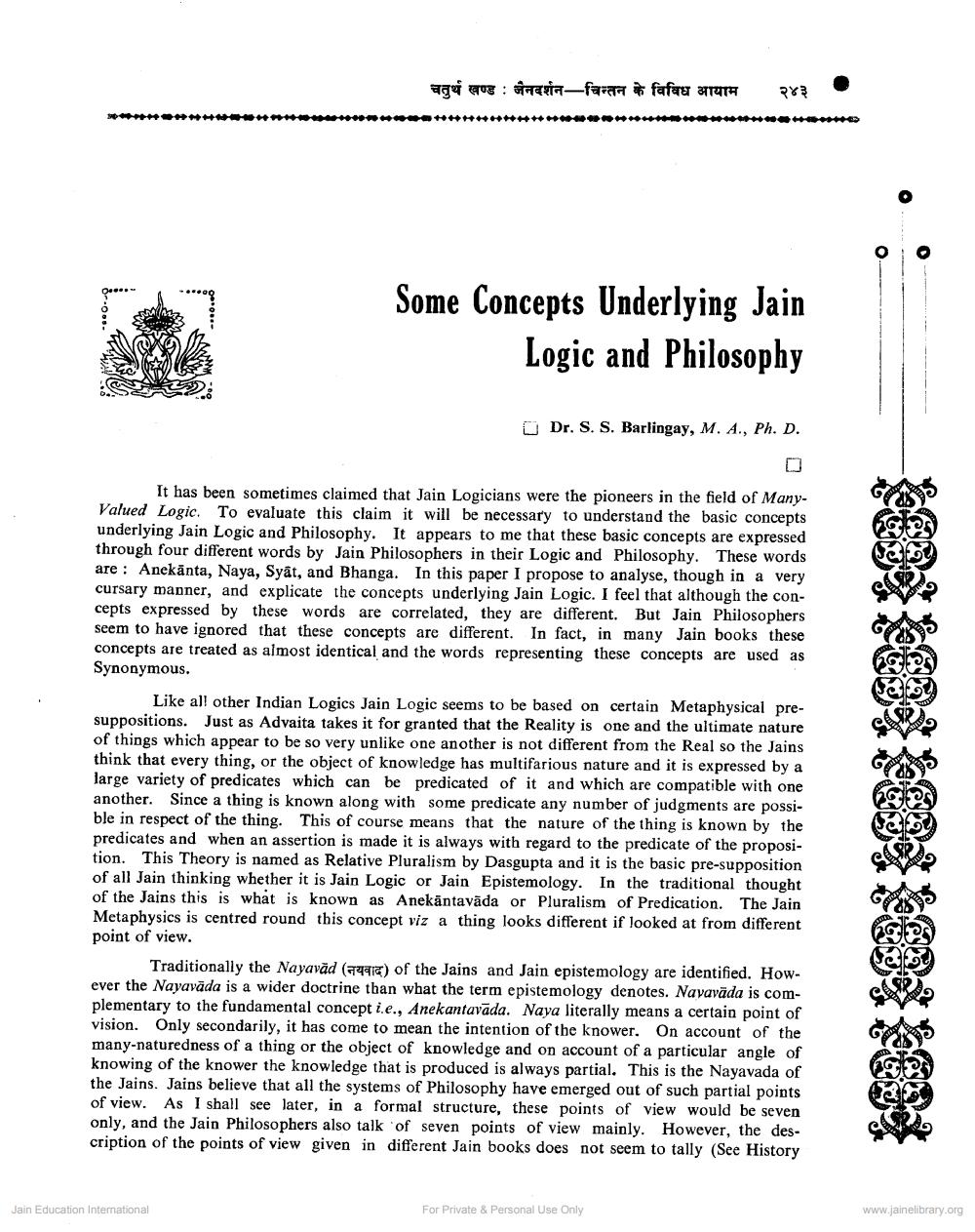________________
चतुर्थ खण्ड : जैनदर्शन-चिन्तन के विविध आयाम
२४३
Some Concepts Underlying Jain
Logic and Philosophy
Alle
Dr. S. S. Barlingay, M. A., Ph. D.
It has been sometimes claimed that Jain Logicians were the pioneers in the field of ManyValued Logic. To evaluate this claim it will be necessary to understand the basic concepts underlying Jain Logic and Philosophy. It appears to me that these basic concepts are expressed through four different words by Jain Philosophers in their Logic and Philosophy. These words are : Anekānta, Naya, Syāt, and Bhanga. In this paper I propose to analyse, though in a very cursary manner, and explicate the concepts underlying Jain Logic. I feel that although the concepts expressed by these words are correlated, they are different. But Jain Philosophers seem to have ignored that these concepts are different. In fact, in many Jain books these concepts are treated as almost identical and the words representing these concepts are used as Synonymous.
Like all other Indian Logics Jain Logic seems to be based on certain Metaphysical presuppositions. Just as Advaita takes it for granted that the Reality is one and the ultimate nature of things which appear to be so very unlike one another is not different from the Real so the Jains think that every thing, or the object of knowledge has multifarious nature and it is expressed by a large variety of predicates which can be predicated of it and which are compatible with one another. Since a thing is known along with some predicate any number of judgments are possible in respect of the thing. This of course means that the nature of the thing is known by the predicates and when an assertion is made it is always with regard to the predicate of the proposition. This Theory is named as Relative Pluralism by Dasgupta and it is the basic pre-supposition of all Jain thinking whether it is Jain Logic or Jain Epistemology. In the traditional thought of the Jains this is what is known as Anekāntavāda or Pluralism of Predication. The Jain Metaphysics is centred round this concept viz a thing looks different if looked at from different point of view.
Traditionally the Nayavād (4492) of the Jains and Jain epistemology are identified. However the Nayavāda is a wider doctrine than what the term epistemology denotes. Navavāda is complementary to the fundamental concept i.e., Anekantavāda. Naya literally means a certain point of vision. Only secondarily, it has come to mean the intention of the knower. On account of the many-naturedness of a thing or the object of knowledge and on account of a particular angle of knowing of the knower the knowledge that is produced is always partial. This is the Nayavada of the Jains. Jains believe that all the systems of Philosophy have emerged out of such partial points of view. As I shall see later, in a formal structure, these points of view would be seven only, and the Jain Philosophers also talk of seven points of view mainly. However, the description of the points of view given in different Jain books does not seem to tally (See History
Jain Education International
www.jainelibrary.org
For Private & Personal Use Only




